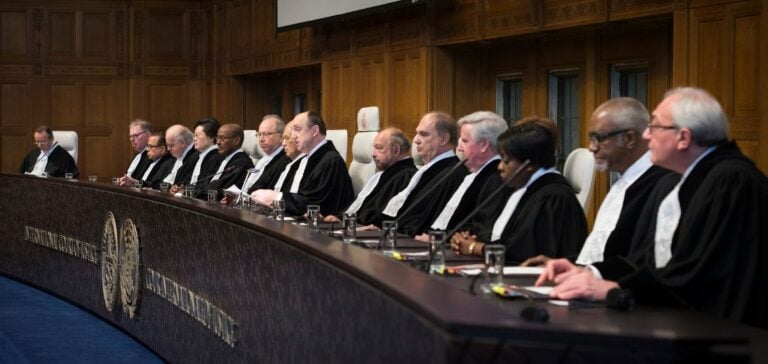Venezuela is formally challenging the International Court of Justice (ICJ), although it does not recognize its jurisdiction, to claim sovereignty over the Essequibo, an oil-rich region currently under Guyana’s control. “Venezuela is handing over to the ICJ a document and its respective copies containing the historical truth and evidence demonstrating that we alone hold title to the Guayana Esequiba territory,” said Vice President Delcy Rodriguez, presenting the documents in The Hague.
Guyana’s reaction and response
In response to this Venezuelan action, Guyana welcomed the handover of documents as an opportunity for the tribunal to consider the arguments of each side, saying, “It is good for the Tribunal to have before it the submissions of both sides” to “take into account all the arguments and evidence to make a judgment.”
Historical background and disagreement
The dispute dates back to a disputed 1899 agreement, which Caracas describes as fraudulent. “The 1899 decision is a fraud. Venezuela has never accepted the Court’s jurisdiction over this territorial dispute,” insisted Ms. Rodriguez. It stresses that handing over documents to the ICJ does not constitute recognition of its jurisdiction.
Recent policy implications
Tensions escalated with President Maduro’s decision to officially designate Essequibo as a new state of Venezuela. He also criticized the alleged installation of US “secret military bases” in the region, which Georgetown described as “a flagrant violation of the most fundamental principles of international law.”
Resolution discussion
Talks to resolve the conflict appear to be stagnating, with Caracas arguing for bilateral negotiations outside the ICJ, while Guyana insists that everything must be resolved by the court in The Hague. Both nations said they wanted to avoid military escalation, with the presidents of both countries agreeing “never to resort to force”.
It’s a complex issue with significant international implications, not least because of the disputed region’s abundant natural resources. Venezuela continues to seek a resolution that would confirm its historic claims, while Guyana seeks to maintain sovereignty under current rules of international law.






















